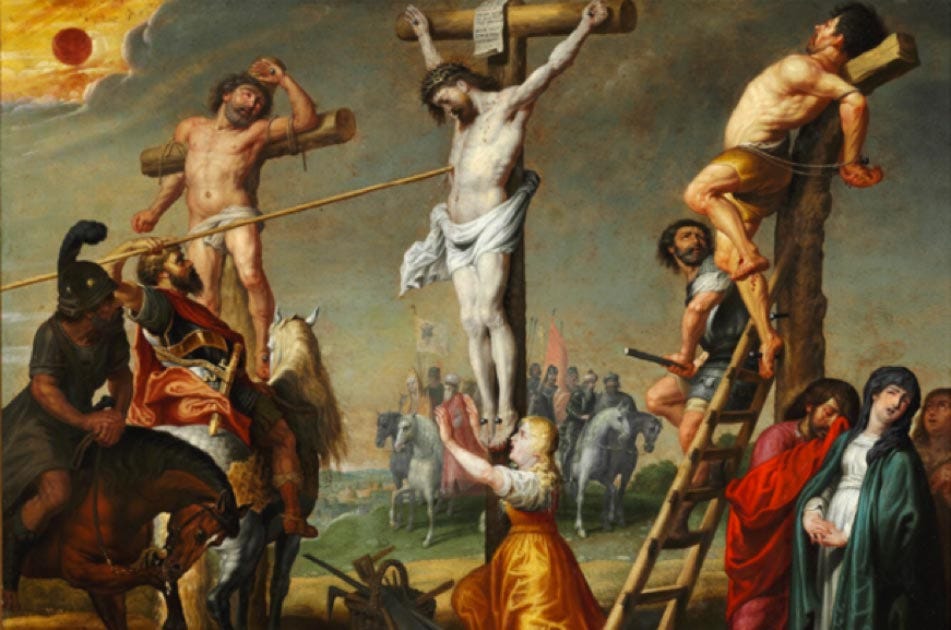Today’s readings don’t really tie together in any obvious way. But for Catholics, the structure of the Church is a way to show love and friendship at a distance to those we have never met, and probably will never meet. Cooperation and understanding through Holy Mother Church is what binds us all in a way that Jesus envisioned.
Reading 1
Acts 15:22-31
The Apostles and presbyters, in agreement with the whole Church, decided to choose representatives and to send them to Antioch with Paul and Barnabas. The ones chosen were Judas, who was called Barsabbas, and Silas, leaders among the brothers. This is the letter delivered by them: "The Apostles and the presbyters, your brothers, to the brothers in Antioch, Syria, and Cilicia of Gentile origin: greetings. Since we have heard that some of our number who went out without any mandate from us have upset you with their teachings and disturbed your peace of mind, we have with one accord decided to choose representatives and to send them to you along with our beloved Barnabas and Paul, who have dedicated their lives to the name of our Lord Jesus Christ. So we are sending Judas and Silas who will also convey this same message by word of mouth: 'It is the decision of the Holy Spirit and of us not to place on you any burden beyond these necessities, namely, to abstain from meat sacrificed to idols, from blood, from meats of strangled animals, and from unlawful marriage.
If you keep free of these, you will be doing what is right. Farewell.'"
And so they were sent on their journey. Upon their arrival in Antioch they called the assembly together and delivered the letter. When the people read it, they were delighted with the exhortation.
So it was decided in yesterday’s reading that Gentiles don’t have to fully convert to Judaism and follow the Mosaic Law.1 Today’s reading is the formal declaration of such, which Barsabbas and Silas are sent to deliver.
This was a problem with the early Church until, oh, two hundred years ago? Misinterpretations of the law and tradition would lead to bad preaching, even heresy. It takes some time to debate these issues and then correct them. Distributing the correction takes even longer when you have to hand-deliver the message.
It’s a good thing the current hierarchy can correct issues quickly, right?
Responsorial Psalm
Ps 57:8-9, 10 and 12
R. I will give you thanks among the peoples, O Lord.
My heart is steadfast, O God; my heart is steadfast;
I will sing and chant praise.
Awake, O my soul; awake, lyre and harp!
I will wake the dawn.
R. I will give you thanks among the peoples, O Lord.
I will give thanks to you among the peoples, O LORD,
I will chant your praise among the nations.
For your mercy towers to the heavens,
and your faithfulness to the skies.
Be exalted above the heavens, O God;
above all the earth be your glory!
R. I will give you thanks among the peoples, O Lord.
The psalmist wants to sing so much and so long, he’ll go all night. He’s going to wake the dawn! He wants to tell everyone about God, which will take a long time, if he does it in person like Barsabbas and Silas.
Alleluia
Jn 15:15b
R. Alleluia, alleluia.
I call you my friends, says the Lord,
for I have made known to you all that the Father has told me.
R. Alleluia, alleluia.
In the Old Testament, even preeminent figures like Moses,2 Joshua,3 and David4 were called slaves of God. Only Abraham was a “friend of God.”5 Until now.
Gospel
Jn 15:12-17
Jesus said to his disciples: "This is my commandment: love one another as I love you. No one has greater love than this, to lay down one's life for one's friends. You are my friends if you do what I command you. I no longer call you slaves, because a slave does not know what his master is doing. I have called you friends, because I have told you everything I have heard from my Father. It was not you who chose me, but I who chose you and appointed you to go and bear fruit that will remain, so that whatever you ask the Father in my name he may give you. This I command you: love one another."
“Friends” could also be translated as “those whom one loves,” which is kind of a clunky phrasing, so I get it.
Jesus is obviously talking about the crucifixion. He’s dying for His friends. Not just the disciples; everyone. He died for all sinners, which means all sinners are His friends. You, me, tax collectors, Pharisees, even the Centurion who stabbed Him on the cross.
Jesus sets a profound, and difficult to follow, example for all of us. But His one command is clear—love one another.





